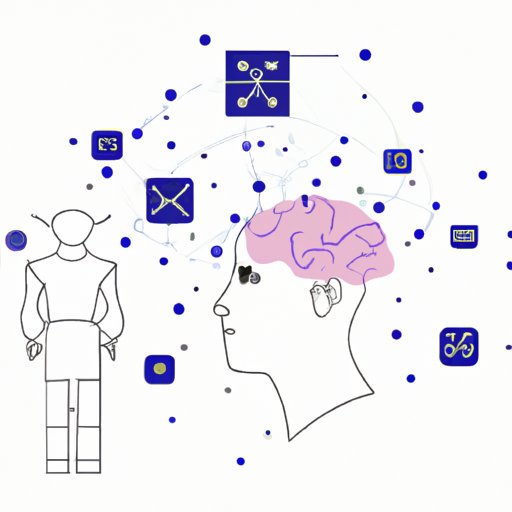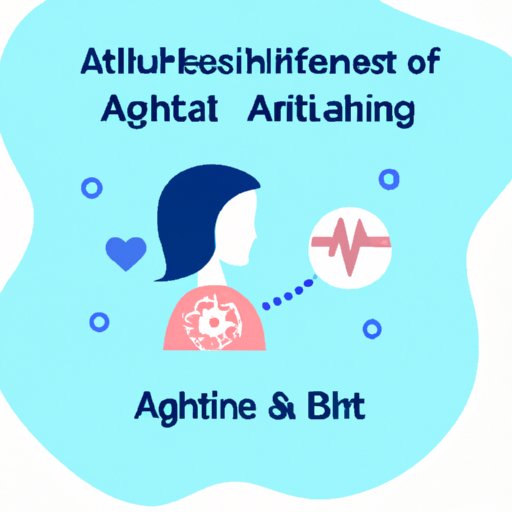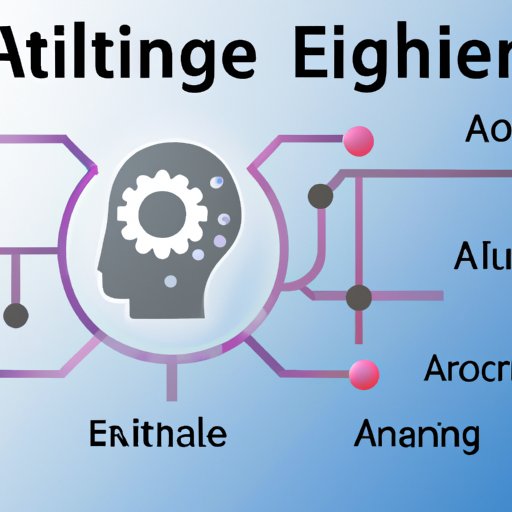Introduction
Artificial intelligence (AI) has become an integral part of our lives, from helping to diagnose medical conditions to managing our finances. As AI technology advances, it’s important that we consider the ethical implications of these developments. This article explores what is ethical AI and its implications for society. We’ll examine the principles, best practices, and benefits of ethical AI and machine learning, with a focus on the importance of responsible AI development.

Exploring the Principles of Ethical AI
AI ethics is the study of how to develop, deploy, and use Artificial Intelligence in a way that is socially responsible and beneficial to society. AI ethics refers to the principles and guidelines that govern the development, deployment, and use of AI systems and technologies. It is based on the idea that technology should be designed and used in ways that are beneficial to humanity and that respect the rights of individuals.
What is Ethical AI?
At its core, ethical AI is about ensuring that AI-driven decisions are fair, transparent, and accountable. It involves considering the ethical implications of AI-based decisions and taking steps to ensure that they are made responsibly. AI ethics includes considerations such as privacy, data protection, accountability, safety, and transparency. It also encompasses broader issues such as justice, fairness, and trust.
The Importance of Ethical AI
As AI technology becomes increasingly prevalent in our lives, it’s important to ensure that it is developed and used responsibly. AI can have a powerful impact on our lives, so it’s important to ensure that its use is ethical and beneficial to society. If not, it can lead to serious consequences, including privacy violations, discrimination, and even physical harm. As noted by World Economic Forum founder Klaus Schwab: “The potential of AI is huge, but if we do not manage it responsibly, there is a real risk that it could be misused or abused.”
An In-depth Look at Ethical AI
As more organizations adopt AI technology, it’s important to understand how to put ethical principles into practice. Here are some key considerations for developing and deploying ethical AI solutions:
How to Implement Ethical AI in Practice
Organizations should take a proactive approach to implementing ethical AI solutions. This involves creating an ethical framework that outlines the organization’s values and principles, as well as specific policies and procedures for developing and deploying AI-based solutions. Organizations should also consider the following when implementing ethical AI:
- Ensure transparency and explainability: AI systems should be designed in a way that allows users to understand how decisions are being made.
- Build trust: Organizations should seek to build trust with users by ensuring that AI solutions are secure and reliable.
- Avoid bias: AI systems should be designed to avoid bias and ensure fairness in decision-making.
- Protect privacy: Organizations should ensure that user data is protected and only used in accordance with applicable laws and regulations.
- Strive for accountability: Organizations should be accountable for their AI solutions and take responsibility for any negative outcomes.
Best Practices for Organizations
Organizations should strive to adhere to best practices when developing and deploying AI solutions. This includes incorporating ethical principles into the design process, regularly auditing and testing AI systems, and providing clear explanations of how AI systems work. Additionally, organizations should ensure that AI systems are properly monitored and supervised, and that they are regularly evaluated to ensure that they remain compliant with ethical standards.

The Benefits of Ethical AI
Adopting ethical AI solutions can have numerous benefits for organizations and society. By developing AI solutions responsibly, organizations can gain the trust of users and attract top talent. Additionally, ethical AI solutions can help reduce the risk of discrimination, privacy violations, and other unintended consequences. According to Microsoft CEO Satya Nadella: “If we can get this right, then AI will be a tremendous force for good in the world.”
Achieving a More Responsible AI Future
By adhering to ethical principles and best practices, organizations can help to create a more responsible AI future. This involves ensuring that AI solutions are developed and deployed in a way that is beneficial to society and respectful of individual rights. Additionally, organizations should strive to create a culture of ethical AI, where ethical considerations are embedded into the design and implementation of AI solutions.
Ethical AI and Machine Learning
Machine learning (ML) is a subset of AI that involves training machines to learn from data. ML algorithms can be used to make predictions, optimize processes, and automate tasks. However, ML can also be used to make decisions that are biased, unfair, and even dangerous. As such, it’s important to ensure that ML algorithms are developed and used responsibly.
Understanding the Impact on Society
Organizations should consider the potential impact of their ML solutions on society. This includes understanding how ML algorithms may affect individuals and groups, as well as considering the potential for misuse or abuse. Additionally, organizations should strive to create ML solutions that are transparent and explainable, and that are designed to protect the privacy and security of users.
Conclusion
AI is transforming our world, and it’s important to ensure that it is developed and used responsibly. This article explored what is ethical AI and its implications for society. We examined the principles, best practices, and benefits of ethical AI and machine learning, with a focus on the importance of responsible AI development. By adhering to ethical principles and best practices, organizations can help to create a more responsible AI future.
Summary of Key Points
In conclusion, ethical AI is about ensuring that AI-driven decisions are fair, transparent, and accountable. Organizations should strive to adhere to best practices when developing and deploying AI solutions, such as incorporating ethical principles into the design process and protecting user privacy. Adopting ethical AI solutions can have numerous benefits for organizations and society, and by adhering to ethical principles and best practices, organizations can help to create a more responsible AI future.
Final Thoughts on Ethical AI
As AI technology continues to evolve, it’s important to ensure that it is developed and used responsibly. AI ethics is the study of how to develop, deploy, and use Artificial Intelligence in a way that is socially responsible and beneficial to society. By adhering to ethical principles and best practices, organizations can help to create a more responsible AI future.
(Note: Is this article not meeting your expectations? Do you have knowledge or insights to share? Unlock new opportunities and expand your reach by joining our authors team. Click Registration to join us and share your expertise with our readers.)
